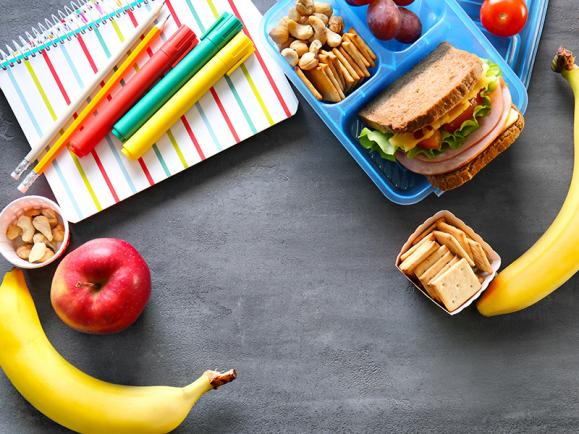
Childhood obesity is a serious and prevalent problem in our society today. Almost one in five adolescents and children are overweight or are diagnosed with obesity. There are many ways to help remedy this ongoing epidemic by teaching children about starting healthy eating practices.
Research studies stated that elementary students who are overweight were four times more likely to have obesity by the end of middle school. Since the negative change in health can happen so young, it is essential to prevent it early on. It is less difficult to change a child’s nutrition and active choices when they are at an early and more impressionable age. Children are brilliant in that they can comprehend that whole, natural foods contain nutrients, and processed junk foods do not. It just takes the right learning and healthy eating habits.
Children should steer clear of processed junk food. There are many good alternatives to harmful food habits. Instead, try healthy practices such as drinking water instead of sugary beverages, eating fresh produce instead of processed, and reading food labels to confirm any toxic preservatives added.
There are many reasons why kids must eat a healthy diet, but here are the three most important.
Physical Health and Development
When children eat nutrient-filled produce, they give their bodies the fuel needed to balance their energy, metabolism and maintain a healthy weight. Their developmental stages of physical and mental growth are forming the foundation for the rest of their lives.
Eating the right foods can help children ensure they have strong teeth and bones now and in the future. Having strong teeth is essential for cavity prevention. Sugary foods and drinks should be avoided since they give a quick burst of energy that leads to a crash soon after the sugar high.
All eleven organ systems in the body need certain vitamins to synthesize energy for optimal function. Carbohydrates, lipids, proteins, vitamins, and minerals from whole, natural foods form the strong foundation for the body’s processes. Even young individuals should take their heart health in consideration since over 92 million people in the US have some variation of cardiovascular disease. It is essential that they get all the vitamins, nutrients, and minerals to prevent diabetes, heart disease, and obesity.
Mental and Emotional Health
Healthy eating habits can have a positive impact on mental health as well. Consuming fresh and natural food can improve brain function and help lower the risk of mental health conditions such as anxiety and depression. Almost everyone gets cranky when hungry, but children can feel even more emotional unrest when the proper nutrients are not being supplied to their bodies. Lipids from good foods regulate the hormones to act as chemical messengers. When one eats a healthy and balanced diet, they are more likely to feel that way. The famous phrase “You Are What You Eat” stands true.
Eating all-natural, whole foods containing a plethora of vitamins, antioxidants, and minerals fuels the brain and shields it from oxidative stress. Oxidative stress is simply the leftover waste produced when the body uses oxygen. This oxygen can damage cells in high doses.
School Performance
When a child constantly eats poor food choices, it will affect their performance in school. Energy and focus play vital roles in a child’s daily education. Test-taking and attentiveness in class are activities that are contingent on the student’s state of energy. The level of energy from food consumed can even have an effect on playing with classmates during recess. Lack of energy from an unhealthy diet can taint the playground experience if the child is too tired to run around and play. A diet filled with greasy and fattening food can leave the body feeling drained. Junk food depletes the body of energy since the body must work harder to digest the contents. Healthy foods supply the body with fuel since it contains vitamins such as B-12 that convert into glucose for energy.
Ways to Foster Healthy Eating Habits
Children are known for their notorious picky tastebuds. Rather than letting those at times misguided tastebuds control your family’s food options, offer healthy alternatives that foster good eating routines at an early age. Cooking a delicious, healthy meal with your kids can teach them that they can have fun and eat yummy, nutritious food too. Preparing healthy meals and snacks with your children is also a great way to spend time with them and create memories. Cooking together will also give them the knowledge and experience to prepare food for themselves as they get older.
There are many other fun health education activities to teach children about their health and nutritional foods. You could make a scavenger hunt list for fruits and vegetables in the market. This is an interactive way to let them pick out healthy items, and it prepares them for nutritious grocery shopping when they are grown up.
Drawing fruits and vegetables is a great art & crafts option. This creative activity is beneficial for children aged two to six who are just learning about various fruits, nuts, and vegetables. Coloring is a great way to relax, learn, and embrace the creative lobe of the brain. If you want to take it to the next level of fun, starting a family garden is a great way for the whole family to participate in healthy eating! It could be a great bonding activity and save a lot of money on food in the long run. Gardening is a great activity that you can also collaborate with your neighbors or friends.
It is essential for children to eat nutritious foods starting in their developmental years. Helping to give them the knowledge and encouragement to make healthy choices is vital. Educating children in their developmental years to have a nutritious diet with minimal processed junk foods will set a wonderful tone for their lifelong lifestyle.

